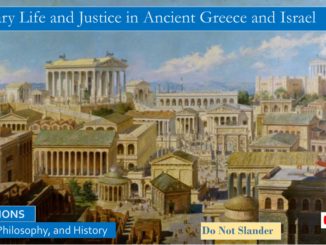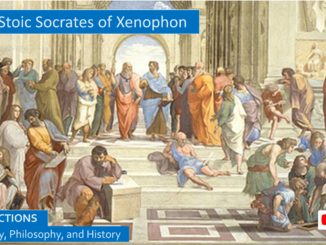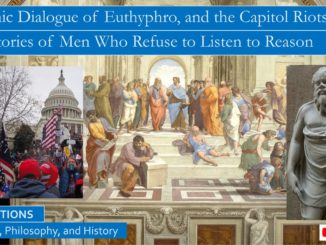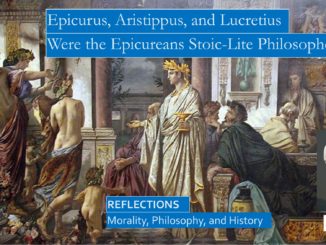
Pondering the Death of Socrates in Xenophon, Plato, and Aristophanes
These works on the trial and execution of Socrates by Xenophon and Plato testify to their anger at the citizens of Athens for condemning their gadfly teacher and friend. Xenophon and Plato also show their anger at Socrates for the hubris and arrogance displayed in full force in his trial speech and his sentencing speech. They want to remind us that just as the Homeric heroes of the battle of Troy showed their hubris at the battlefield, so too did their hero Socrates show hubris in the public courtroom of Athens. […]





